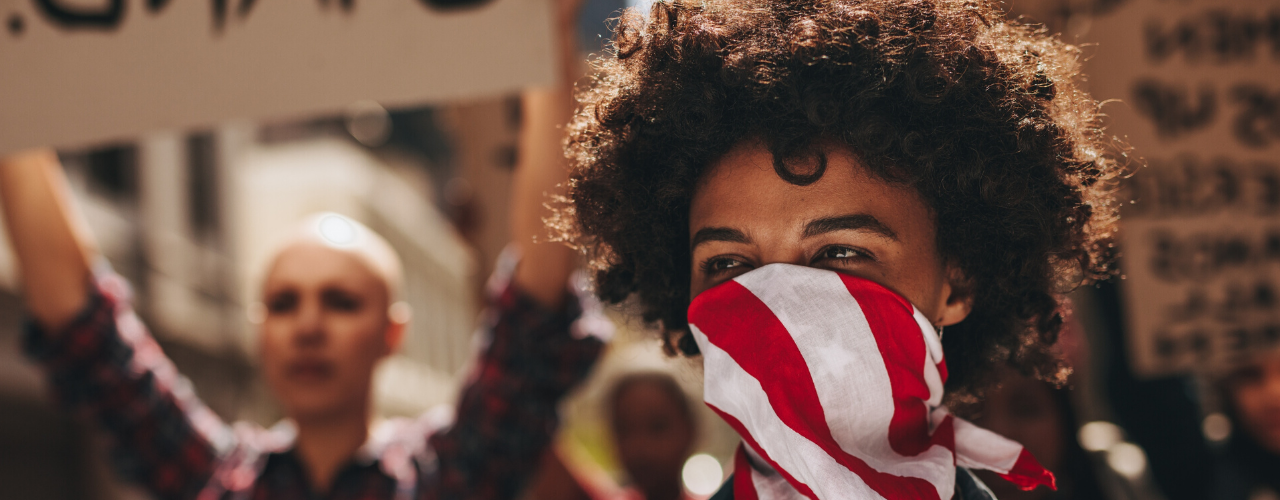
June 5th is World Environment Day 2020, which is happening against the backdrop of seismic global events including a pandemic, the mounting consequences of climate change and widespread protests against systemic and institutionalised racism, triggered by the murder of George Floyd by US police.
Looking through an integral ecology lens allows us to see connections between these seemingly separate events. Previous posts have highlighted the links between biodiversity loss, environmental destruction and the emergence of diseases. We have written about how Covid-19 highlights and compounds layers of pre-existing social and economic injustices and inequalities in our society, which will result in a tsunami of homelessness in its aftermath. Our reflection on Laudato Si’ demonstrates how climate action without social justice will fail.
“The human environment and the natural environment deteriorate together; we cannot adequately combat environmental degradation unless we attend to causes related to human and social degradation.” (LS48)
The worldwide protests of the last two weeks which were sparked by George Floyd’s murder have brought the issue of racism in America to the fore, pushing the Covid-19 pandemic which had dominated headlines for the past two months, off the front page.
Race is an issue that intersects with many others to uncover layers of inequality and injustice. Minority communities and people of colour are disproportionately impacted by climate change, biodiversity loss and environmental destruction. Simply enjoying the natural environment is fraught with racial tensions because outdoor activities are perceived to be the preserve of mainly white people. Black climate activists and experts not only fight against climate change and environmental injustices but also racism, making their work much more difficult. A lack of recognition of the involvement of BAME activists and experts, combined with the relentless effort it takes to fight this inequality “derails our efforts to save the planet”.
Even Covid-19 had a racial subtext in America, as data revealed that the virus was killing black people at a disproportionately higher rate than white people. The same effect was also found in the UK, where black people were four times more likely to die from Covid-19 infection than whites.
Conservation and the Environmental Movement
This World Environment Day we need to acknowledge racism so we can strive to counter it. Pope Francis in an address to the US said “My friends, we cannot tolerate or turn a blind eye to racism and exclusion in any form.”
Climate change, environmental destruction, conservation efforts and racism are intertwined in a way which is difficult to fully appreciate. Not only does climate change disproportionally impact the most vulnerable people in society, which in the US and many other countries means people of colour, but its roots can also be traced back to colonialism and the racist thinking that underpins it.
Disregard for human life can go hand in hand with disregard for the environment and loss of biodiversity. Pope Francis reminds us that “the mindset which leaves no room for sincere concern for the environment is the same mindset which lacks concern for the inclusion of the most vulnerable members of society.” (LS196)
However, racism and exclusion of vulnerable members of society is not wholly the preserve of people who view the environment as expendable. Those who claim to protect the land have also been culprits, notably in America where the creation of protected areas and National Parks was synonymous with expelling Native Americans from their land, allowed it to become tourist areas for the more affluent white people.
Today this mentality of protecting and conserving areas of our planet by expelling indigenous peoples continues. Land grabs from indigenous communities on the pretence of its protection, dubbed ‘Carbon Colonialism’, is an unfortunate result of carbon trading. The money developed countries spend on carbon credits to facilitate a continuation of pollution financed these operations but the true price was paid by the communities that were expelled from their lands. This concept of conservation, while on all levels is socially unjust, is also self-defeating.
As Laudato Si’ says, for indigenous people, “land is not a commodity but rather a gift from God and from their ancestors who rest there, a sacred space with which they need to interact if they are to maintain their identity and values. When they remain on their land, they themselves care for it best.” (LS146)
We need to come to terms with the shaky foundations of the climate and environmental movements and build a more inclusive one which values a diversity of voices and perspectives. Fighting climate change and environmental injustices is difficult enough without excluding a sizable proportion of people who care deeply about these issues. Increasingly, environmental groups are coming to grips with this difficult aspect of the movement. Stephen Corry, director of Survival, an organisation that works in partnership with tribes argues that “Biodiversity relies on human diversity. And we have to fight for both.”
Climate chaos and its effects will have consequences for all, especially those in the global south and marginalised communities in the global north, therefore nobody can be excluded or erased from this fight.

